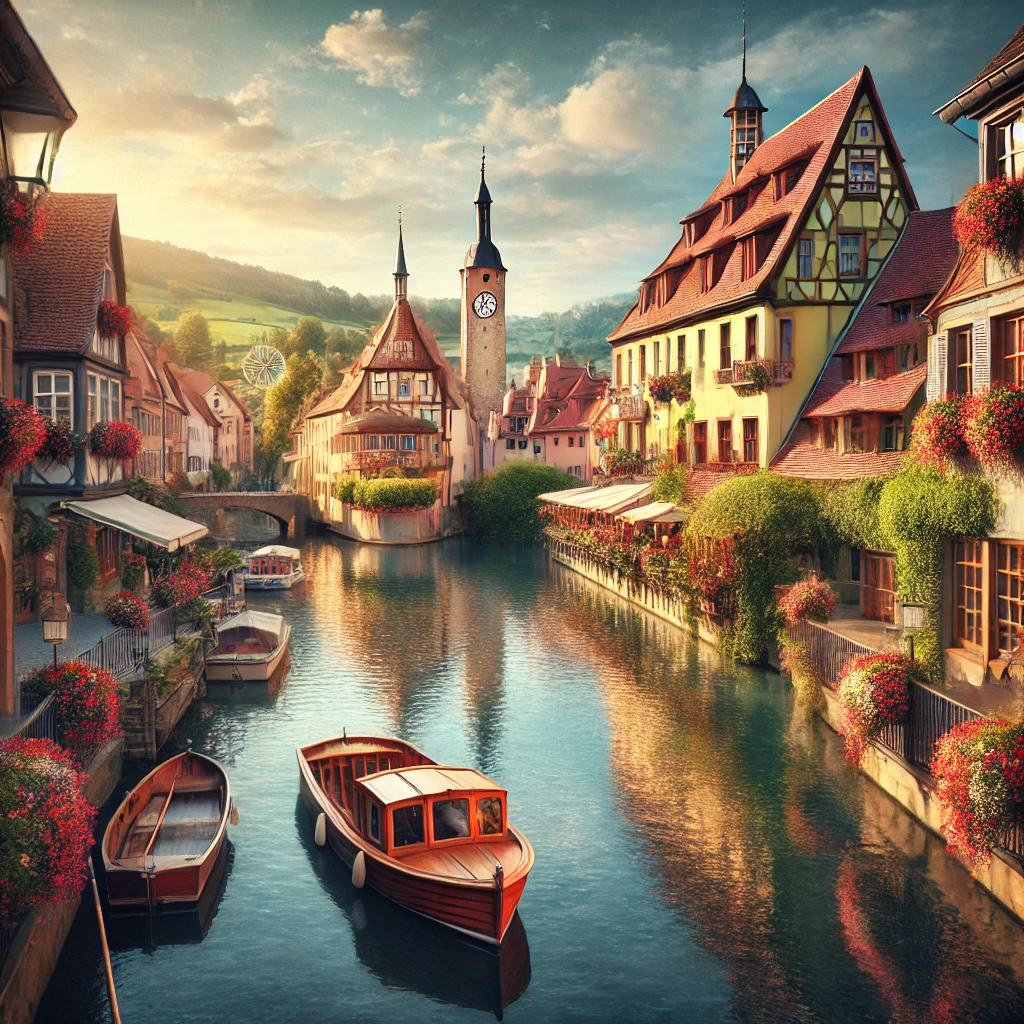Your Ultimate Guide to a Safe and Enchanting Trip
France, the largest country in Western Europe, attracts millions of visitors each year—and for good reason. Whether you’re exploring the vibrant streets of Paris, savoring the sun-soaked beaches of the French Riviera, strolling through the rolling vineyards of Burgundy, immersing yourself in the lavender fields of Provence, or skiing in the majestic French Alps, you’ll find that France is a cultural and natural wonder. Amid all the excitement of planning your French getaway, it’s essential to keep one critical element in mind: securing the right travel insurance. Below, you’ll find all you need to know about why travel insurance is vital when visiting France, what type of coverage you should look for, and a list of can’t-miss destinations to enrich your journey.
1. Why Is Travel Insurance for France So Important?
1.1 Advanced Yet Costly Healthcare
France has one of the world’s most advanced public healthcare systems, renowned for its high standards and modern facilities. However, tourists do not receive the same subsidies or coverage as French citizens. A simple trip to the emergency room, an X-ray, or a brief hospital stay may result in hefty bills if you’re uninsured. This is why comprehensive medical coverage is the cornerstone of any travel insurance plan for France.
1.2 Theft and Loss of Belongings
Like other major tourist destinations, France—especially Paris—experiences a certain level of pickpocketing and theft. Crowded areas like the Louvre, the Eiffel Tower, and the Champs-Élysées can attract petty criminals. Losing a bag containing your camera, passport, or wallet is not only distressing but can also drain your finances. A policy that includes baggage and personal belongings coverage helps you mitigate these risks.
1.3 Cancellations and Delays
France is known for its frequent strikes (grèves), especially in the transportation sector—covering everything from train services (SNCF) to metro lines in Paris, airline workers, and even air traffic controllers. Additionally, inclement weather or other unforeseen events can cause flight cancellations, delays, or train schedule disruptions. Having trip cancellation or interruption coverage allows you to reclaim non-refundable expenses, like hotels or tour bookings, if your plans change suddenly.
1.4 Peace of Mind
A key reason travelers opt for insurance is the tranquility it brings. From lost luggage to unforeseen medical emergencies, knowing you have a safety net in place lets you fully immerse yourself in the cultural, gastronomic, and scenic delights of France without worry.
2. What Should Your Travel Insurance Policy Include?
2.1 Comprehensive Medical Coverage
Look for a policy that includes doctor’s visits, prescriptions, diagnostic tests, emergency treatment, and hospitalization. In some cases, you may also want coverage for medical evacuation in the event you need specialized care and wish to return to your home country. Make sure the coverage limit is sufficiently high to handle France’s healthcare costs.
2.2 Coverage for Sports and Winter Activities
If you plan to visit the Alps or the Pyrenees for skiing, snowboarding, or mountaineering, be aware that many standard insurance policies exclude risky or extreme sports. Check whether you need an additional winter sports add-on so you’re protected if an accident happens on the slopes.
2.3 Baggage and Personal Property
A typical travel insurance policy provides some level of coverage for lost, stolen, or damaged luggage. If you’re traveling with high-value equipment—like a professional camera or expensive electronics—check the maximum reimbursement limits. You might need an extra rider for more comprehensive protection.
2.4 Trip Cancellation, Curtailment, and Delay
Given the propensity for strikes and schedule disruptions, including coverage for trip cancellation, interruption, and delays is wise. This enables you to recoup expenses if a sudden event—family-related, medical, or even widespread transport strikes—prevents you from continuing your plans.
2.5 24/7 Emergency Assistance
Ideally, select a provider with round-the-clock support in your language. Whether you need help finding an English-speaking doctor in a small French town or require assistance after misplacing your passport, a responsive customer service line is invaluable.
3. Comparing Travel Insurance Policies
Define Your Needs
Are you planning a romantic getaway in Paris, a family trip to Disneyland Paris, a wine-tasting tour in Bordeaux, or a ski holiday in the Alps? The nature of your trip should dictate which insurance coverages you prioritize—medical coverage, equipment coverage, or sports add-ons.Check the Coverage Limits
Medical bills in France can accumulate quickly, especially in private clinics. Look for a higher coverage limit so you’re not left with significant out-of-pocket costs.Look for Relevant Add-Ons
- Winter Sports: If you’re skiing, a winter sports add-on is vital.
- Valuable Items: If you’re bringing a pricey camera, laptop, or jewelry, ensure the maximum coverage is adequate.
- Trip Interruption: If there’s any chance you’ll need to cut the trip short, make sure that’s included.
Read Customer Reviews
Visit websites (for instance, trustrip.co.il) that allow you to compare multiple insurance providers. Check not just the premiums but also user experiences, claim processing speeds, and available language support.Review the Small Print
Understand any exclusions—for example, pre-existing medical conditions might not be covered, and some policies have age or activity-related restrictions.
4. Common Situations to Plan For in France
4.1 Skiing and Alpine Accidents
France is a premier ski destination, with resorts like Chamonix, Val d’Isère, or Courchevel attracting thousands of winter sports enthusiasts. While the scenery is breathtaking, accidents—like broken bones or sprains—are not uncommon. Without proper insurance (especially for extreme sports), you could face considerable hospital expenses and even costly helicopter evacuations.
4.2 Pickpocketing in Paris
Landmarks such as the Eiffel Tower, the Louvre, and the Sacré-Cœur can get crowded. Keep your valuables close and consider using a secure bag. In case a theft occurs, a policy covering personal items can cover at least part of the lost valuables.
4.3 Strikes and Transportation Issues
France is well-known for its strikes. If you find yourself in the midst of a major strike, trains and flights could be canceled or heavily delayed. If you need to spend extra nights in a hotel or rebook flights, a policy with trip interruption coverage can offset those costs.
4.4 Illness or Injury
A sudden flu or a bad reaction to new foods might require a trip to a local physician or pharmacy. Having medical coverage ensures you can get treated without dreading the final bill.
4.5 Loss of Travel Documents
Misplacing your passport or driving license can ruin a perfectly good vacation. Some policies offer legal assistance or administrative help in these cases, including covering fees for issuing temporary passports.
5. Must-Visit Destinations in France
Paris
- Eiffel Tower: An emblem of France, offering panoramic city views.
- Louvre Museum: Home to masterpieces such as the Mona Lisa, this museum is vast—plan at least half a day.
- Champs-Élysées: A world-famous avenue lined with luxury stores, cafés, and theaters.
French Riviera (Côte d’Azur)
- Nice: A bustling coastal city known for its promenade (Promenade des Anglais), colorful markets, and azure waters.
- Cannes: Famous for its international film festival, luxury boutiques, and yacht-filled harbor.
- Monaco: Though technically a separate principality, it’s surrounded by French territory and known for glitzy casinos and upscale living.
Provence
- Lavender Fields: Visit in late June to early August to see the vibrant purple blossoms.
- Aix-en-Provence and Avignon: Historic towns filled with charming squares, street markets, and art galleries.
Loire Valley
- Renowned for its enchanting châteaux, like Château de Chambord and Château de Chenonceau.
- Sample world-class wines and cycle through scenic countryside dotted with villages and vineyards.
French Alps
- Chamonix: At the base of Mont Blanc, it offers cable car rides to incredible viewpoints and top-tier ski slopes.
- Annecy: Nicknamed the “Venice of the Alps” for its canals, pastel-hued houses, and stunning lake views.
Bordeaux and Burgundy
- Ideal for wine lovers, featuring vineyard tours and tastings of some of the world’s finest vintages.
- Picturesque towns and lush landscapes form the backdrop to your gastronomic adventures.
6. Practical Tips for Traveling in France
Language
While English is spoken in major tourist areas, learning a few French phrases can go a long way—especially in smaller towns. Basic greetings and polite expressions can enhance your interactions with locals.When to Go
- Peak Season (Summer): Warm, but crowded and expensive. Expect long lines at attractions.
- Off-Season (Fall/Winter): Fewer tourists, cheaper rates, but be prepared for cooler (or even chilly) weather.
Transportation
- Trains: The TGV (high-speed train) and regional TER lines connect most of France. Book tickets early for discounts.
- Metro and Buses in Paris: Convenient but can be crowded. Watch for pickpockets, especially during rush hour.
Tipping
In most French restaurants, a service charge is included (“service compris”), so tipping is not obligatory. However, rounding up or leaving a small tip (5–10%) is common if service was excellent.Traveling by Car
If you plan on renting a car for a scenic road trip, verify whether your insurance policy covers collisions or theft. France’s highways are well-maintained, but tolls can add up.Cultural Etiquette
Greet with a polite “Bonjour” when you enter a shop or restaurant. Respecting local customs fosters better interactions. Avoid speaking loudly in quiet neighborhoods or near historical sites.
7. Conclusion
From the romantic lanes of Paris and the picturesque Riviera to the rural charm of Provence and the grandeur of the French Alps, France offers a diverse range of experiences. To make the most of your visit, be prepared with a robust travel insurance plan that addresses potential medical issues, thefts, transportation strikes, and other unforeseen events. By doing so, you’ll explore top-rated museums, savor gourmet cuisine, admire architectural marvels, and immerse yourself in the rich cultural heritage of France with peace of mind.
Before you finalize your flight ticket and hotel bookings, spend some time comparing various insurance providers—focusing on coverage limits, winter sports add-ons, and baggage protection. Reading customer reviews and paying attention to claim-handling processes can greatly influence your decision. Once your insurance is set, you’ll be free to sip café au lait by the Seine, wander through medieval lanes, sample world-class wines, and truly embrace all that France has to offer—knowing you’re fully protected, come what may.
Bon voyage, and may your French adventure be as enchanting as you’ve always dreamed!





